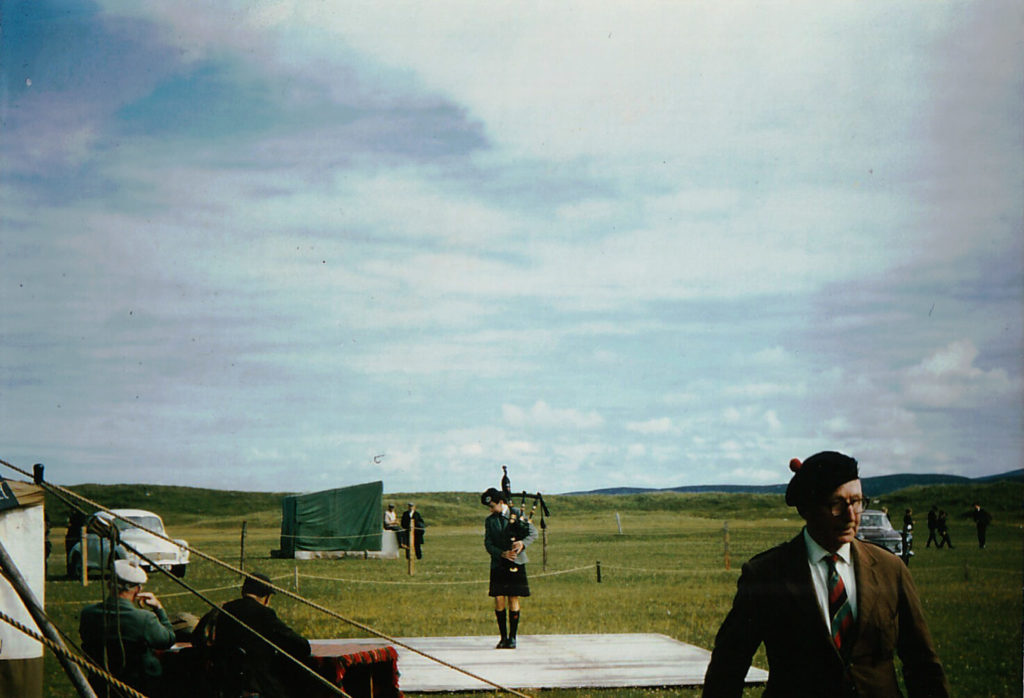Dr. Angus MacDonald: the pipes|drums Interview – Part 2
DAM: I would welcome some interpretation as long as it’s within the idiom, and that’s where you have to make a judgment. But, and certainly I’m involved in the Clan Donald or the Donald MacDonald style of playing, which takes place every year at the Clan Donald Centre in Armadale. And this gives people an opportunity to look at older manuscripts and to try to present it in a musical fashion. And some of these tunes are now being heard played at other competitions. And so things maybe are changing slowly.

p|d: On the other hand, if you heard the kind of parrot fashion, run-of-the-mill kind of interpretation, would you be less appreciative?
DAM: Yeah, well, if you’re judging youngsters you have to realize that sometimes you’re really judging their teachers. What they’re playing is what they were taught. But with the use of recordings sometimes you see a tune changing and somebody accentuating what they’re hearing on the recording and that can happen. Say, in New Zealand, for instance, they’re all listening to the same recordings and they’re changing the way the music was, they’re moving away from what it was. And, in the same way somebody will listen to how another person maybe won a Clasp playing a certain tune and they will copy it. And if there are any defects in the way they played, it can be accentuated.
p|d: And do you think there’s more room for creative expansion in piobaireachd, like your own personal interpretation of a tune?
DAM: Yes. And we’ve been too precious about it in the past and I would welcome hearing piobaireachd played by other instruments more, and piobaireachd players playing with orchestration, and background music to it.
p|d: You’ve got some very well-known light music compositions. Have you tried your hand at piobaireachd composition?
DAM: It’s not something I’ve got into, but certainly my brother Allan has some very good compositions. And he studied, you know, the background to ceol mor and has a better understanding for composing it at least.
p|d: Is it an ambition of yours to put down some piobaireachds that you might have rattling around in your head?
DAM: I would like to say yes. I would love to compose some beautiful pieces of piobaireachd, but I may just stick with jigs and reels at the moment.
p|d: You mentioned the Piobaireachd Society and we talked a little bit about changing attitudes. If you were directly involved with it or could make changes to the Piobaireachd Society, what would you like to see?
DAM: I’d like to see them stimulating more events that piobaireachd would be played at and also maybe going back to some teaching in the rural communities, somehow getting financial support and doing that. We remember in the past that piobaireachd teachers used to go out to South Uist; John MacDonald, R.U. Brown and [Robert] Nicol, and that made a tremendous difference out in South Uist. A lot of good piobaireachd players came out of there. And it would be possible to do some of that and stimulate the playing of piobaireachd. There will always be the “straight up the line competition” heard in piobaireachd. But it would be nice to see branches coming off that of people using piobaireachd in other situations apart from competition.

NO COMMENTS YET